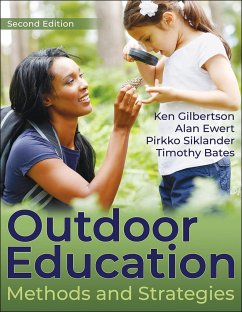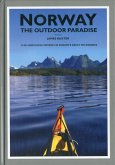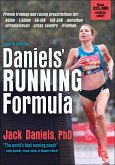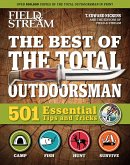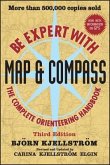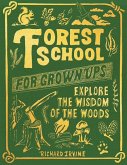- Broschiertes Buch
- Merkliste
- Auf die Merkliste
- Bewerten Bewerten
- Teilen
- Produkt teilen
- Produkterinnerung
- Produkterinnerung
Outdoor Education: Methods and Strategies, Second Edition, shows students how to use physical, cognitive, and affective methods to effectively teach lessons to a variety of audiences in various outdoor settings.
Andere Kunden interessierten sich auch für
![Living Wild Living Wild]() Bear GryllsLiving Wild21,99 €
Bear GryllsLiving Wild21,99 €![Norway the Outdoor Paradise Norway the Outdoor Paradise]() James BaxterNorway the Outdoor Paradise29,99 €
James BaxterNorway the Outdoor Paradise29,99 €![Daniels' Running Formula Daniels' Running Formula]() Jack DanielsDaniels' Running Formula30,99 €
Jack DanielsDaniels' Running Formula30,99 €![Field & Stream: Best of Total Outdoorsman Field & Stream: Best of Total Outdoorsman]() T. Edward NickensField & Stream: Best of Total Outdoorsman16,99 €
T. Edward NickensField & Stream: Best of Total Outdoorsman16,99 €![Be Expert with Map and Compass Be Expert with Map and Compass]() Bjorn KjellstromBe Expert with Map and Compass26,99 €
Bjorn KjellstromBe Expert with Map and Compass26,99 €![Forest School For Grown-Ups Forest School For Grown-Ups]() Richard IrvineForest School For Grown-Ups28,99 €
Richard IrvineForest School For Grown-Ups28,99 €![Dadventures Dadventures]() Alex GregoryDadventures20,99 €
Alex GregoryDadventures20,99 €-
-
-
Outdoor Education: Methods and Strategies, Second Edition, shows students how to use physical, cognitive, and affective methods to effectively teach lessons to a variety of audiences in various outdoor settings.
Hinweis: Dieser Artikel kann nur an eine deutsche Lieferadresse ausgeliefert werden.
Hinweis: Dieser Artikel kann nur an eine deutsche Lieferadresse ausgeliefert werden.
Produktdetails
- Produktdetails
- Verlag: Human Kinetics Publishers
- 2 ed
- Seitenzahl: 280
- Erscheinungstermin: 13. April 2022
- Englisch
- Abmessung: 215mm x 280mm x 19mm
- Gewicht: 798g
- ISBN-13: 9781492591221
- ISBN-10: 149259122X
- Artikelnr.: 62800097
- Herstellerkennzeichnung
- Libri GmbH
- Europaallee 1
- 36244 Bad Hersfeld
- gpsr@libri.de
- Verlag: Human Kinetics Publishers
- 2 ed
- Seitenzahl: 280
- Erscheinungstermin: 13. April 2022
- Englisch
- Abmessung: 215mm x 280mm x 19mm
- Gewicht: 798g
- ISBN-13: 9781492591221
- ISBN-10: 149259122X
- Artikelnr.: 62800097
- Herstellerkennzeichnung
- Libri GmbH
- Europaallee 1
- 36244 Bad Hersfeld
- gpsr@libri.de
Ken Gilbertson, PhD, is a professor of outdoor education in the department of applied human services at the University of Minnesota–Duluth (UMD), where he is also director of the Center for Environmental Education. He has more than 50 years of experience teaching outdoor and environmental education at the college level and has conducted wilderness education, taught at nature centers and Outward Bound wilderness schools, and educated a wide range of audiences through the UMD outdoor program. Gilbertson’s specialty is in understanding how people learn and applying the methods that will best help them learn about the outdoors. He has designed and constructed a wilderness education curriculum, including a state-of-the-art kit that employs several learning theories. Gilbertson has received two outstanding faculty awards, has been honored with a UMD leadership scholarship in his name, and is a board member of numerous outdoor education and environmental committees. He also serves as reviewer for the Journal of Experiential Education and of abstracts for the Symposium on Experiential Education Research. Alan Ewert, PhD, is a professor emeritus at Indiana University, where he became the Patricia and Joel Meier Endowed Chair in Outdoor Leadership in 1998. A prolific scholar, Ewert has published articles in a variety of journals and books related to outdoor leadership and recreation. He continues his professional service through numerous venues, including his status as a fellow and past president of the Academy of Leisure Sciences and one of the founding editors of the International Journal of Wilderness . He serves on the editorial board of the Journal of Experiential Education . In 2021, he received the Theodore and Franklin Roosevelt Award for Excellence in Recreation and Park Research through the National Recreation and Park Association. He was the 1996 recipient of the Reynold E. Carlson Award for Distinction in Outdoor Environmental Education; the 2002 recipient of the J.B. Nash Scholar Award through the American Association for Leisure and Recreation; and the 2005 recipient of the Julian W. Smith Award through the American Alliance for Health, Physical Education, Recreation and Dance. Pirkko Siklander, PhD, is an adjunct professor and university researcher at the University of Oulu in Finland. Her main research interest deals with learning and teaching processes in technology-enhanced and collaborative learning, particularly on creative collaboration, triggers for raising interest, and playfulness. During the past 20 years, Siklander has researched and published several scientific articles and book chapters about playful learning and playful teaching, covering early childhood through advanced adulthood. She is an experienced teacher educator and a leader of the University of Oulu’s learning, education, and technology (LET) master’s degree program, which educates experts in the field of learning sciences and the use of technologies. Tim Bates, MEd, is the associate director and an environmental education coordinator in the recreational sports outdoor program at the University of Minnesota–Duluth, where he also serves as the assistant director of the Center for Environmental Education and as an adjunct faculty member in environmental and outdoor education. Bates has more than 35 years of experience teaching outdoor, environmental, and science education to people of all ages. In addition to developing curricula for schools and other organizations, he has been involved with the creation of an elementary school focused on environmental education and serves on numerous boards and committees related to the outdoors. His specialty is working with preservice students to help them understand and teach about the natural environment.
Part I. Foundations of Outdoor Education
Chapter 1. Defining Outdoor Education
Why the Outdoors?
Model of Outdoor Education
Environmental Education
Interpretation
Adventure Education
Experiential Education
Education Structure
Development of Outdoor Education
Rationale for Teaching Outdoors
Summary
Chapter 2. Describing the Outdoor Educator
Professionalism
Professional Responsibilities
Summary
Chapter 3. Learning Theories in Outdoor Education
Theories in Outdoor Education
Learning Theory Guiding Outdoor Education
Experiential Education
Constructivism
Scaffolding
Brain-Based Learning
Environmental Learning
Multiple Intelligences
Playful Learning Theory
Summary
Part II. Preparation for Teaching Outdoors
Chapter 4. Understanding Participants
Audience Assessment
Stereotyping
Gender
Age and Cognitive Development
Medical Conditions
Experience
Group Familiarity
Abilities
Culture and Ethnicity
Strategies for Teaching Diverse Audiences
Summary
Chapter 5. Creating the Learning Environment
Foundations of the Learning Environment
Components of Successful Learning Environments
Summary
Chapter 6. Outdoor Education Settings
Site Selection
Learning Barriers
Equipment
Logistics
Record Keeping
Special Settings: Lessons in the Night
Summary
Chapter 7. Designing Lessons
Advantages of Lesson Plans
Format
Structure
Assessment
Summary
Part III. Methods and Delivery of Outdoor Education
Chapter 8. Physical Methods
Physical Skills Development
Physical Manipulation
Activities, Games, and Competitions
Theatrics
Initiatives and Ropes Courses
Summary
Chapter 9. Cognitive Methods
Lecture and Discussion
Inquiry
Videography
Service Learning
Supporting Materials
Peer Teaching
Summary
Chapter 10. Affective Methods
Guided Discovery
Visual Imagery
Storytelling
Scenarios and Case Studies
Summary
Chapter 11. Sample Lessons
Night Hike
Navigation
Maple Sugar Bush
Weather
Fishing Ethics
Basic Techniques for Sea Kayaking
Personal Growth
Lighting a Camp Stove
Nature Awareness
Summary
Chapter 12. Your Future in Outdoor Education
Issues and Trends Affecting Outdoor Education
Working With Mainstream Education
State Standards and High-Stakes Testing
Professional Certification
Education or Advocacy?
Emotional Needs of Participants
Strategic Planning for Professional Growth
Summary
Appendix A. Professional Organizations in the United States and
Internationally
Appendix B. Sample Forms
Chapter 1. Defining Outdoor Education
Why the Outdoors?
Model of Outdoor Education
Environmental Education
Interpretation
Adventure Education
Experiential Education
Education Structure
Development of Outdoor Education
Rationale for Teaching Outdoors
Summary
Chapter 2. Describing the Outdoor Educator
Professionalism
Professional Responsibilities
Summary
Chapter 3. Learning Theories in Outdoor Education
Theories in Outdoor Education
Learning Theory Guiding Outdoor Education
Experiential Education
Constructivism
Scaffolding
Brain-Based Learning
Environmental Learning
Multiple Intelligences
Playful Learning Theory
Summary
Part II. Preparation for Teaching Outdoors
Chapter 4. Understanding Participants
Audience Assessment
Stereotyping
Gender
Age and Cognitive Development
Medical Conditions
Experience
Group Familiarity
Abilities
Culture and Ethnicity
Strategies for Teaching Diverse Audiences
Summary
Chapter 5. Creating the Learning Environment
Foundations of the Learning Environment
Components of Successful Learning Environments
Summary
Chapter 6. Outdoor Education Settings
Site Selection
Learning Barriers
Equipment
Logistics
Record Keeping
Special Settings: Lessons in the Night
Summary
Chapter 7. Designing Lessons
Advantages of Lesson Plans
Format
Structure
Assessment
Summary
Part III. Methods and Delivery of Outdoor Education
Chapter 8. Physical Methods
Physical Skills Development
Physical Manipulation
Activities, Games, and Competitions
Theatrics
Initiatives and Ropes Courses
Summary
Chapter 9. Cognitive Methods
Lecture and Discussion
Inquiry
Videography
Service Learning
Supporting Materials
Peer Teaching
Summary
Chapter 10. Affective Methods
Guided Discovery
Visual Imagery
Storytelling
Scenarios and Case Studies
Summary
Chapter 11. Sample Lessons
Night Hike
Navigation
Maple Sugar Bush
Weather
Fishing Ethics
Basic Techniques for Sea Kayaking
Personal Growth
Lighting a Camp Stove
Nature Awareness
Summary
Chapter 12. Your Future in Outdoor Education
Issues and Trends Affecting Outdoor Education
Working With Mainstream Education
State Standards and High-Stakes Testing
Professional Certification
Education or Advocacy?
Emotional Needs of Participants
Strategic Planning for Professional Growth
Summary
Appendix A. Professional Organizations in the United States and
Internationally
Appendix B. Sample Forms
Part I. Foundations of Outdoor Education
Chapter 1. Defining Outdoor Education
Why the Outdoors?
Model of Outdoor Education
Environmental Education
Interpretation
Adventure Education
Experiential Education
Education Structure
Development of Outdoor Education
Rationale for Teaching Outdoors
Summary
Chapter 2. Describing the Outdoor Educator
Professionalism
Professional Responsibilities
Summary
Chapter 3. Learning Theories in Outdoor Education
Theories in Outdoor Education
Learning Theory Guiding Outdoor Education
Experiential Education
Constructivism
Scaffolding
Brain-Based Learning
Environmental Learning
Multiple Intelligences
Playful Learning Theory
Summary
Part II. Preparation for Teaching Outdoors
Chapter 4. Understanding Participants
Audience Assessment
Stereotyping
Gender
Age and Cognitive Development
Medical Conditions
Experience
Group Familiarity
Abilities
Culture and Ethnicity
Strategies for Teaching Diverse Audiences
Summary
Chapter 5. Creating the Learning Environment
Foundations of the Learning Environment
Components of Successful Learning Environments
Summary
Chapter 6. Outdoor Education Settings
Site Selection
Learning Barriers
Equipment
Logistics
Record Keeping
Special Settings: Lessons in the Night
Summary
Chapter 7. Designing Lessons
Advantages of Lesson Plans
Format
Structure
Assessment
Summary
Part III. Methods and Delivery of Outdoor Education
Chapter 8. Physical Methods
Physical Skills Development
Physical Manipulation
Activities, Games, and Competitions
Theatrics
Initiatives and Ropes Courses
Summary
Chapter 9. Cognitive Methods
Lecture and Discussion
Inquiry
Videography
Service Learning
Supporting Materials
Peer Teaching
Summary
Chapter 10. Affective Methods
Guided Discovery
Visual Imagery
Storytelling
Scenarios and Case Studies
Summary
Chapter 11. Sample Lessons
Night Hike
Navigation
Maple Sugar Bush
Weather
Fishing Ethics
Basic Techniques for Sea Kayaking
Personal Growth
Lighting a Camp Stove
Nature Awareness
Summary
Chapter 12. Your Future in Outdoor Education
Issues and Trends Affecting Outdoor Education
Working With Mainstream Education
State Standards and High-Stakes Testing
Professional Certification
Education or Advocacy?
Emotional Needs of Participants
Strategic Planning for Professional Growth
Summary
Appendix A. Professional Organizations in the United States and
Internationally
Appendix B. Sample Forms
Chapter 1. Defining Outdoor Education
Why the Outdoors?
Model of Outdoor Education
Environmental Education
Interpretation
Adventure Education
Experiential Education
Education Structure
Development of Outdoor Education
Rationale for Teaching Outdoors
Summary
Chapter 2. Describing the Outdoor Educator
Professionalism
Professional Responsibilities
Summary
Chapter 3. Learning Theories in Outdoor Education
Theories in Outdoor Education
Learning Theory Guiding Outdoor Education
Experiential Education
Constructivism
Scaffolding
Brain-Based Learning
Environmental Learning
Multiple Intelligences
Playful Learning Theory
Summary
Part II. Preparation for Teaching Outdoors
Chapter 4. Understanding Participants
Audience Assessment
Stereotyping
Gender
Age and Cognitive Development
Medical Conditions
Experience
Group Familiarity
Abilities
Culture and Ethnicity
Strategies for Teaching Diverse Audiences
Summary
Chapter 5. Creating the Learning Environment
Foundations of the Learning Environment
Components of Successful Learning Environments
Summary
Chapter 6. Outdoor Education Settings
Site Selection
Learning Barriers
Equipment
Logistics
Record Keeping
Special Settings: Lessons in the Night
Summary
Chapter 7. Designing Lessons
Advantages of Lesson Plans
Format
Structure
Assessment
Summary
Part III. Methods and Delivery of Outdoor Education
Chapter 8. Physical Methods
Physical Skills Development
Physical Manipulation
Activities, Games, and Competitions
Theatrics
Initiatives and Ropes Courses
Summary
Chapter 9. Cognitive Methods
Lecture and Discussion
Inquiry
Videography
Service Learning
Supporting Materials
Peer Teaching
Summary
Chapter 10. Affective Methods
Guided Discovery
Visual Imagery
Storytelling
Scenarios and Case Studies
Summary
Chapter 11. Sample Lessons
Night Hike
Navigation
Maple Sugar Bush
Weather
Fishing Ethics
Basic Techniques for Sea Kayaking
Personal Growth
Lighting a Camp Stove
Nature Awareness
Summary
Chapter 12. Your Future in Outdoor Education
Issues and Trends Affecting Outdoor Education
Working With Mainstream Education
State Standards and High-Stakes Testing
Professional Certification
Education or Advocacy?
Emotional Needs of Participants
Strategic Planning for Professional Growth
Summary
Appendix A. Professional Organizations in the United States and
Internationally
Appendix B. Sample Forms

